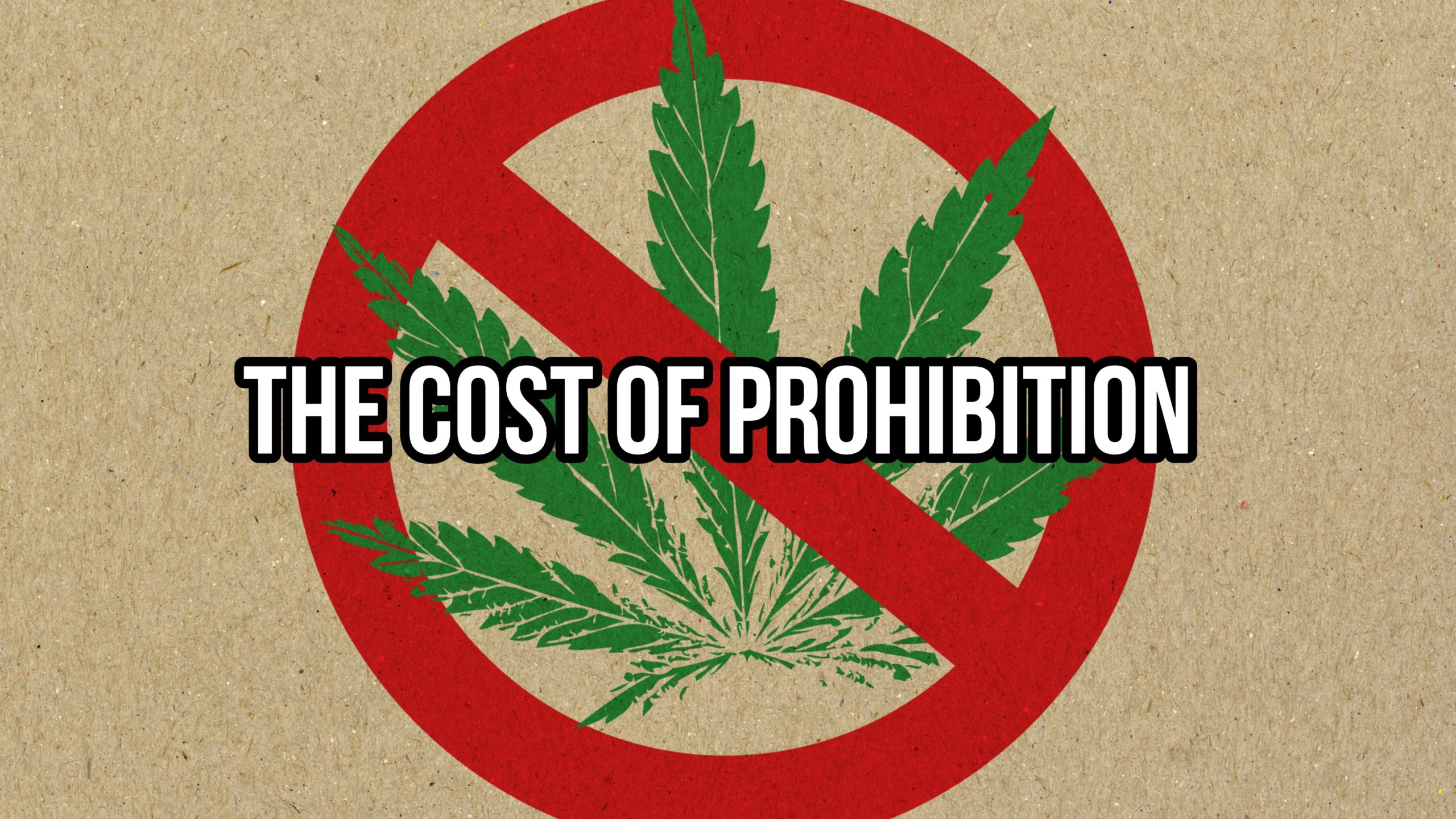The Costly Consequences of Marijuana Prohibition: A Comprehensive Analysis
Marijuana prohibition has been a contentious issue for decades, with proponents arguing for its criminalization due to perceived health and safety concerns, while opponents highlight the negative consequences of such policies. This article aims to provide a comprehensive analysis of the damage caused to the country by marijuana prohibition, covering various subtopics such as economic impact, social fallout, criminal justice system overload, health and safety concerns, lost opportunities, racial disparities, and the road to reform.
Economic Impact: The Burden of Marijuana Prohibition on National Finances
One of the most significant consequences of marijuana prohibition is the economic burden it places on the country. According to a report by the American Civil Liberties Union (ACLU), the United States spends an estimated $3.6 billion annually on enforcing marijuana prohibition. This includes costs associated with arrests, prosecutions, and incarceration. These funds could be better allocated to other pressing issues such as education, healthcare, or infrastructure development.
Furthermore, marijuana prohibition also hinders economic growth and job creation. The legal cannabis industry has been booming in states where it is legalized, generating billions of dollars in tax revenue and creating thousands of jobs. A study conducted by New Frontier Data estimated that the legal cannabis market could create over 250,000 jobs by 2020 if marijuana were legalized nationwide. By maintaining prohibition, the country is missing out on a significant economic opportunity.
Social Fallout: Examining the Damaging Effects of Marijuana Prohibition on Communities
Marijuana prohibition has had a detrimental impact on communities across the country. One of the most significant consequences is the perpetuation of a black market. Prohibition creates a lucrative underground economy, controlled by criminal organizations, which fuels violence and poses a threat to public safety. According to a study published in the British Journal of Criminology, areas with higher rates of marijuana arrests tend to experience higher levels of violent crime.
Additionally, marijuana prohibition disproportionately affects marginalized communities. The ACLU report mentioned earlier found that Black Americans are nearly four times more likely to be arrested for marijuana possession than their white counterparts, despite similar usage rates. This racial disparity not only perpetuates systemic inequality but also erodes trust between law enforcement and communities of color.
Criminal Justice System Overload: The Strain of Marijuana Prohibition on Law Enforcement
The enforcement of marijuana prohibition places a significant strain on the criminal justice system. Law enforcement resources are diverted towards arresting and prosecuting individuals for marijuana-related offenses, which often leads to overcrowded prisons and backlogged court systems. According to the FBI’s Uniform Crime Reporting Program, there were over 545,000 marijuana-related arrests in 2019 alone.
These arrests not only burden the criminal justice system but also have long-lasting consequences for individuals. A marijuana conviction can result in a criminal record, limiting employment opportunities and access to housing, education, and other essential services. This perpetuates a cycle of poverty and further marginalizes individuals who have already been disproportionately impacted by systemic inequalities.
Health and Safety Concerns: Unintended Consequences of Marijuana Prohibition
Contrary to the arguments put forth by proponents of marijuana prohibition, criminalization does not necessarily lead to improved public health and safety. In fact, it can have unintended consequences. Prohibition makes it difficult to regulate the quality and potency of marijuana products, leading to potential health risks for consumers. Illicit market products may be contaminated with harmful substances or have inconsistent levels of THC, the psychoactive compound in marijuana.
Moreover, prohibition hinders research into the potential medical benefits of marijuana. The Schedule I classification of marijuana, which categorizes it as having no accepted medical use, makes it challenging for scientists to conduct rigorous studies on its therapeutic properties. This restricts access to potentially life-saving treatments for patients suffering from conditions such as chronic pain, epilepsy, or cancer.
Lost Opportunities: How Marijuana Prohibition Hinders Economic Growth and Innovation
Marijuana prohibition stifles economic growth and innovation in various sectors. The legal cannabis industry has shown immense potential for job creation, tax revenue generation, and entrepreneurial opportunities. However, due to federal prohibition, businesses operating in the cannabis industry face numerous challenges, including limited access to banking services, high tax rates, and regulatory hurdles.
Furthermore, marijuana prohibition hampers research and development in the field of cannabis. Scientists and entrepreneurs are unable to fully explore the plant’s potential for various applications, such as alternative fuels, biodegradable plastics, or sustainable textiles. By maintaining prohibition, the country is missing out on opportunities for economic diversification and technological advancements.
Racial Disparities: The Disproportionate Impact of Marijuana Prohibition on Minority Communities
One of the most glaring consequences of marijuana prohibition is its disproportionate impact on minority communities. Despite similar usage rates, Black Americans are significantly more likely to be arrested and incarcerated for marijuana-related offenses. This racial disparity is a result of systemic biases within law enforcement and the criminal justice system.
The ACLU report mentioned earlier found that Black individuals are 3.73 times more likely to be arrested for marijuana possession than white individuals, despite comparable usage rates. This disparity not only perpetuates racial inequalities but also contributes to the erosion of trust between law enforcement and communities of color. It is essential to address these disparities and work towards a more equitable and just system.
The Road to Reform: Exploring Alternatives to Marijuana Prohibition for a Better Future
Given the numerous negative consequences of marijuana prohibition, it is crucial to explore alternative approaches that prioritize public health, social justice, and economic growth. One such approach is the legalization and regulation of marijuana. Several states have already taken this step, implementing comprehensive regulatory frameworks that ensure consumer safety, generate tax revenue, and create jobs.
Legalization also allows for the expungement of prior marijuana-related convictions, providing individuals with a chance to rebuild their lives and contribute positively to society. Additionally, regulation enables the implementation of public health campaigns and educational initiatives to promote responsible use and mitigate potential risks.
Another alternative to prohibition is the decriminalization of marijuana. Decriminalization removes criminal penalties for possession of small amounts of marijuana, treating it as a civil offense instead. This approach reduces the burden on the criminal justice system, minimizes the collateral consequences of marijuana convictions, and allows law enforcement to focus on more pressing issues.
In conclusion, marijuana prohibition has had far-reaching and costly consequences for the country. It burdens national finances, damages communities, strains the criminal justice system, poses health and safety concerns, hinders economic growth and innovation, perpetuates racial disparities, and limits opportunities for reform. It is imperative to reevaluate current policies and explore alternative approaches that prioritize public health, social justice, and economic prosperity. By doing so, we can pave the way for a better future.











